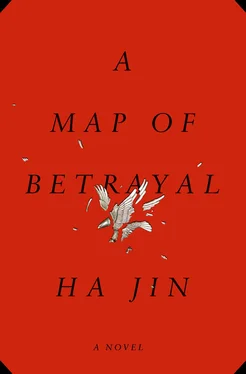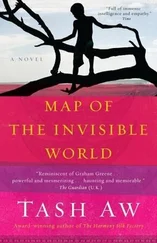Then, border clashes between China and India broke out in south Tibet. The Chinese troops crossed the McMahon Line and overran the Indian brigades. Though the victorious army had advanced dozens of miles into the disputed territory, it soon pulled back to its original positions. The world was amazed and finally relieved, because few countries would so easily give up land seized through bloody battles. As Gary translated the reports sent over from Taiwan, he began to see why the Chinese had retreated. Internationally China had become a pariah of sorts and had lost most of the prestige gained from the Korean War. The aftermath of the Great Leap Forward and the famine had reduced the country to an underdog, one that both the United States and the Soviet Union held as an enemy. Even most of the Third World nations preferred India to China, because Nehru had a better reputation and more personal charisma than Mao. Above all, there was no way China could have provided for its troops if they had occupied the seized land permanently. The roads to the front were arduous and unreliable, often disrupted by torrential rains, landslides, heavy snowfalls, and avalanches. (The ammunition and provisions for the Battle of Walong had been transported by mules and packhorses for months.) It had been wise of the Chinese leaders to withdraw in a timely manner. As a matter of fact, Chairman Mao claimed at a meeting, “With this victory we hope to have peace on the Sino-Indian border for a decade.” To Gary’s mind, when it came to international affairs, Mao seemed more astute and prudent, perhaps because he couldn’t wield absolute power in that context as he did domestically.
That was Suzie’s opinion as well. Gary could talk with her freely about the political and economic situations back home, since she also followed the news and was eager to compare notes with him. Yet their conversations would without fail shift to their own ongoing affair. Suzie seemed on edge lately and often insinuated that their relationship could not continue as it was.
“What are your true feelings about me?” she asked him one afternoon in her living room, staring him in the face.
Her question threw him. He said, “What do you mean?”
“Who am I to you? Do you plan to keep me as your whore forever?” Her eyes flashed with the smolder of hurt.
“Suzie, I’ve told you many times that I can’t leave Nellie. If I filed for divorce, I’d lose my daughter. I wouldn’t be able to pay the alimony and child support. Nellie wouldn’t go out to work — she’d be hell-bent on bankrupting me.”
“Heavens, you can think only in terms of money!”
“I don’t want to be a deadbeat, I have my responsibilities.”
“Don’t you have any of those for me?”
“We’re friends. You’re an independent woman.”
“You have a heart of stone.”
In silence he picked up his hat and made for the door.
“Where are you off to? Come back!” she cried.
He ignored her and dragged himself away.
She had often complained he was “a cold fish”; yet in bed he could be warm and tender, especially after sex. He could melt her without making deliberate effort. He’d even say something that jolted her. Once he whispered to her, “I’m your dog, totally at your disposal. If you want to kill me, you can do it now. You can use a knife or gun, or whatever.” She could tell he really didn’t care and completely surrendered to her mercy. She couldn’t avoid wondering what was wrong with him.
But the moment their lovemaking was over, he became his normal self again, collected and detached. She couldn’t possibly fathom how messy his life was — his first family was back in China, waiting for him to come home. But here, he had another wife and another child. Torn, hardly able to juggle the two families, he wouldn’t bring a third into the mix. Yet the more he resisted Suzie’s insinuations and suggestions, the more frustrated she became. She put his stubbornness down to his lack of ability to communicate. He would remain silent when she said she couldn’t understand why a professional translator was unable to render his own thoughts and feelings into words. If only he could spill everything to her. If only there’d been no children involved. If only China and the United States had not been hostile nations so that he could travel back and forth easily. If only he could become a citizen of both countries, a man of the world.
He was sure that Suzie was a good woman, but his inability to explain his predicament had widened the rift between them and made her more cantankerous. One day in mid-December, as he was leaving her place, he resolved not to see her again. Yes, he’d better extricate himself in time and stop seeking pleasure outside his family. He had to endure the bone-deep loneliness alone.
At home he and Nellie seldom talked about anything outside their household. Their daughter was a first grader now, a shy girl but full of beans. Recently Nellie had found a part-time job, keeping books for Outstanding Fences, Inc., a small business run by two men, father and son. She’d go to their office near a crossroads three mornings a week and do the rest of the bookkeeping at home. She made $1.95 an hour. The wages she pulled in were almost enough for her family’s groceries. Although Gary discouraged her from working outside their home because he made enough to support the family, she wouldn’t quit, saying, “I can’t depend on you.” Deep down, she felt he didn’t love her and might walk out on her one of these days. Indeed, even in bed he rarely used the word “love,” and lately sometimes she couldn’t turn him on however she tried. “You’re such a cold man,” she would mutter, wondering if it was true, as he’d told her prior to their marriage, that she was the only woman he’d ever slept with. How could that be possible? What a liar.
Only to his daughter was he attentive and lively. Every morning on his way to work he’d drop her at George Mason Elementary School. Before the girl clambered out of the car, he’d say, “Give Daddy a kiss.” She’d give him a smack on the cheek and then scamper away, her heavy book bag bobbing on her back. If there was no car behind him, he would wait until he saw her disappear beyond the entrance of the brick schoolhouse.
WHEN GARY WENT TO HONG KONG by way of Taipei in late September 1963, Bingwen told him that the famine was over — things had turned around and China was on the right track again. The national leaders had rectified their mistakes and introduced new policies, so people continued devoting themselves to building the new society. As for Gary’s family in the countryside, everybody was well. He should set his mind at ease and just focus on his mission overseas. The intelligence he had provided this time was invaluable, especially the international perspectives on China’s domestic troubles and the CIA’s operation in Indochina. After depositing five hundred dollars into Gary’s account in Hang Seng Bank, Bingwen told him, “We know this small amount is far from enough to compensate you, but we did our best. In the future, when our country’s rich and strong, we’ll give you more.”
“It’s an honor to serve our motherland. Please don’t mention compensation,” Gary said with feeling, his eyes hot and moist.
Bingwen gave him the contact information for Father Kevin Murray, a priest at a Catholic church in downtown Baltimore. From now on Gary could go to that man for help in case of emergency. “Rest assured,” his handler said, “Murray grew up in the Philippines, but his mother is Fujianese. His father is an Englishman. If you want to send us something urgent, he can handle that too.”
After lunch at a restaurant called Old Shanghai, the two got on a cruise boat heading out to the ocean. Gary was refreshed, as if the land and the water around him were more invigorating than those in Virginia. Indeed he hadn’t felt so alive for years, and there was a stir of joy in his heart that for the moment soothed the pang of homesickness. He gazed at the distant shoreline and the wooded hills, on which a few villas were shaded by shifting foliage and beyond which spread the land he had so often returned to in his dreams. A flock of seabirds were wheeling above the flickering waves, letting out cries like children in a game. Far away in the northeast a sampan with bronze sails jumped a little on the horizon.
Читать дальше











